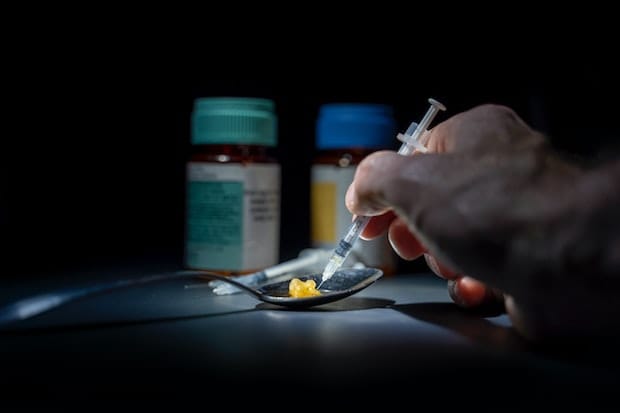Table of Contents
I. What are Psychotic Disorders?
III. Understanding Schizophrenia
VI. Substance-Induced Psychosis
VII. Diagnosing Psychotic Disorders
VIII. Treating Psychotic Disorders
What are Psychotic Disorders?
Psychotic disorders encompass several serious mental health issues. Experiencing a psychotic disorder can be incredibly distressing for the person affected, their friends, and family members. Diagnosing psychotic disorders like schizophrenia and bipolar disorder is essential so that people can seek proper treatment.
Psychotic disorders can have several unpleasant symptoms that may affect your everyday life. There are many types of psychotic disorders, and each one has its specific treatment. In some cases, more common disorders like major depression can have psychotic symptoms. If you notice you or a loved one is experiencing unusual symptoms like delusions or hallucinations, you should see your doctor for a checkup.
Psychosis involves losing touch with reality and affects the way in which the brain receives and processes information. Some might feel ashamed to admit they are experiencing psychosis, but there is no need to feel ashamed. There are several medications available, including Saphris (asenapine), Rexulti (brexpiprazole), Geoden (ziprasidone), and Latuda (lurasidone) to assist in treatment. Read on to learn more about the symptoms of the different types of psychotic disorders. [1]
Psychosis does not occur suddenly. It typically begins slowly and worsens over time. If you are aware of the warning signs of psychosis, you can seek help early and prevent any complications down the line. As mentioned above, each psychotic disorder has specific symptoms, but there are some general signs to look out for if you are at risk of psychosis. Warning signs of psychosis: Early psychosis symptoms: If you experience all of the above, you are at risk for a psychotic episode. If you have a psychotic episode, you will also experience hallucinations and delusions. Hallucinations can involve auditory, tactile, or visual hallucinations. You may hear voices that are not present and experience sensations you cannot explain. Delusions are beliefs that don’t make sense to others. For example, you may feel that outside forces are in control of your feelings or that you have special powers. [2] Schizophrenia is a mental health condition that can involve symptoms of psychosis. Less than one percent of people in the United States are diagnosed with this disease. Schizophrenia can be difficult to diagnose because symptoms don’t occur until the late teens to early 30s. This disorder usually involves hallucinations, delusions, and disordered thinking. If schizophrenia is left untreated, it can severely impact daily functioning. Those with severe schizophrenia may have trouble keeping a job and dealing with social interactions. This disorder can occur due to several genetic and environmental factors. Schizophrenic patients may be unaware they are experiencing symptoms, so it is usually up to their family or friends to get them help. [3] Paranoid type: This type of schizophrenia involves being preoccupied with delusions or auditory hallucinations. These delusions may lead someone to think people are plotting against them when nothing of the sort is occurring. This type does not include disorganized speech or catatonic behavior. Disorganized type: This type involves nonsensical speech. Their speech may involve a flat or inappropriate affect. Disorganized speech may make it difficult to converse with others. Catatonic type: Catatonia involves excessive movement (catatonic excitement) or decreased movement (catatonic stupor). Undifferentiated type: If you do not fit into the disorganized, catatonic, or paranoid classes of schizophrenia, you are diagnosed with undifferentiated schizophrenia. Residual type: This type of schizophrenia involves symptoms of schizophrenia, but delusions, hallucinations, and catatonic behavior are not present. [4] A schizoaffective disorder involves schizophrenia symptoms as well as symptoms of a mood disorder. Symptoms like hallucinations and delusions may be mixed with depression symptoms like hopelessness and sleep problems. Bipolar and depressive are the two types of schizoaffective disorder. To be diagnosed with this condition, you must experience a major mood episode with psychotic symptoms for at least two weeks. Symptoms may vary from person to person, depending on which type of schizoaffective illness you have. Symptoms can include: A delusional disorder is a type of psychosis where the main symptom involves delusions. Delusions are classified based on the theme of the delusions experienced. You may experience these delusions due to a combination of genetic, biological, and environmental factors. Unlike other psychotic disorders, those with a delusional disorder can still socialize, function regularly, and do not behave unusually. A delusional disorder typically occurs later in life. The different types of delusional disorders can include: Grandiose: Those with this type may have an over-inflated sense of worth, power, or identity. They may feel like they have a great talent or have made an important discovery. Erotomanic: If a person believes that an important or famous person is in love with him or her, they may have an erotomanic disorder. They may try to get into contact with this person, and stalking may occur. Jealous: This delusional disorder can lead someone to believe that their spouse or sexual partner is unfaithful. Persecutory: A person under persecutory delusions may believe that they are being spied on or mistreated by someone close to them. They may make inflammatory accusations or complaints to legal authorities. Somatic: A person may believe that they have a serious medical problem or physical defect with this type of delusion. Mixed: Two or more of the above delusions are present in a person with a mixed delusional disorder. [6] Several substances can lead to symptoms of delusions and psychosis. Delusions and hallucinations occur in excess for those with substance-induced psychosis. These symptoms have to be abnormal in comparison to substance intoxication or withdrawal. The following substances can lead to psychosis: People may have a break from reality if they abuse an intoxicant. This can occur if you take too much of a certain drug or have an adverse reaction to a mixture of substances. Around 9.3 percent of people in the United States may need treatment for a drug or alcohol problem. Contrary to popular belief, certain drugs do not trigger a severe mental illness, but people may be prone to psychosis if they become overly intoxicated. [8] Psychotic disorders are often difficult to diagnose. Firstly, your doctor will perform a physical exam and get your detailed medical history. If your doctor determines that you may have a psychotic disorder, they will likely refer you to a psychiatrist. Psychiatrists have the proper tools to diagnose a psychotic disorder. [9] It can help to keep track of your symptoms, which can help your psychiatrist make an accurate diagnosis. Your doctor or psychiatrist may ask: Medication and psychotherapy are the two main forms of treatment. Antipsychotics are used to treat serious conditions like psychosis. Drugs like Saphris (asenapine), Geoden (ziprasidone), and Latuda (lurasidone) are antipsychotics that help treat schizophrenia and bipolar disorder. These drugs reduce or increase neurotransmitters to regulate information throughout the brain. They can affect important mood substances like dopamine, noradrenaline, and serotonin in the brain. If these substances are out of balance, hallucinations and delusions may occur. If your psychotic disorder involves a mood condition, your doctor may also prescribe you antidepressants like Rexulti (brexpiprazole). You can use Rexulti to treat major depression as well as schizophrenia. Attending psychotherapy sessions can also help patients understand the source of their delusions or hallucinations. This can help people avoid any triggers or situations that may make their psychotic symptoms worse. [10] The content in this article is intended for informational purposes only. This website does not provide medical advice. In all circumstances, you should always seek the advice of your physician and/or other qualified health professionals(s) for drug, medical condition, or treatment advice. The content provided on this website is not a substitute for professional medical advice, diagnosis, or treatment.
Symptoms of Psychosis
Understanding Schizophrenia

a. Types of Schizophrenia
Schizoaffective Disorder

Delusional Disorders
Substance-Induced Psychosis

Diagnosing Psychotic Disorders
Treating Psychotic Disorders
